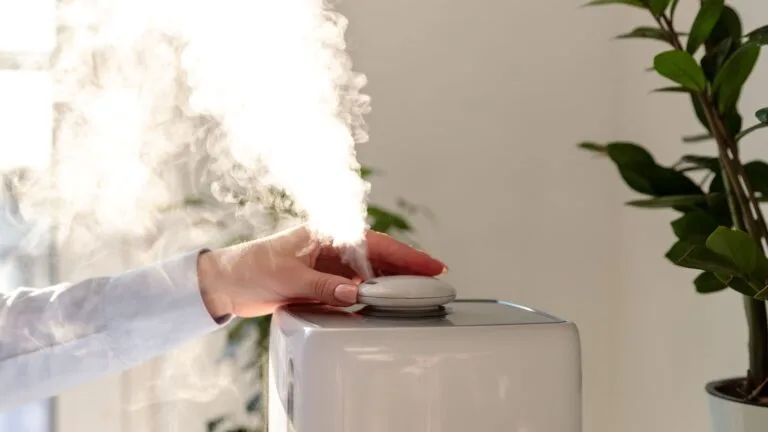Key Takeaways
- Identify sinusitis by recognizing symptoms such as facial pressure, nasal congestion, and thick mucus.
- Employ steam inhalation and stay hydrated to alleviate sinus pain and facilitate mucus drainage.
- Explore herbal remedies like eucalyptus oil and ginger tea for their natural decongestant properties.
- Understand the proper use of nasal irrigation tools like the Neti pot to clear sinus passages.
- Know when to seek medical advice if home remedies do not improve symptoms of sinusitis.
Spotting the Signs: Recognizing Sinusitis Symptoms
When the air-filled spaces within the bones around your nose, known as sinuses, become inflamed, the discomfort can be unmistakable. This inflammation, or sinusitis, often starts with a feeling of weight in your face, particularly around the nose, eyes, and forehead. It’s not uncommon to dismiss these initial twinges as mere headache or tiredness, but as sinusitis develops, the symptoms become more pronounced.
What Sinusitis Feels Like: Common Symptoms
Sinusitis often presents with a set of symptoms that can include:
- A persistent stuffy nose, where you find breathing through your nose difficult.
- Thick, discolored mucus that may drain down the back of your throat or out of your nose.
- Facial pressure and pain, which intensifies when you lean forward or move your head quickly.
These symptoms not only cause discomfort but can also interfere with your daily activities, making it important to address them promptly.
Not Just a Cold: Uncommon Signs of Sinusitis
Besides the tell-tale signs, there are other indicators that might suggest you’re dealing with sinusitis. For instance, you might experience:
- Bad breath or a reduced sense of taste and smell, which is often overlooked as a sign of sinus issues.
- Ear pressure or fullness, as the inflammation can affect the Eustachian tube, which connects your middle ear to your throat.
- A cough that worsens at night, due to mucus dripping down the back of your throat.
Being aware of these less common symptoms can help you distinguish sinusitis from a regular cold or allergies.
Seeking Comfort: Home Remedies for Sinusitis
When you’re feeling the pressure and discomfort of sinusitis, relief can’t come soon enough. Fortunately, there are several home remedies that can provide comfort and potentially speed up the healing process.
Steam and Hydration: Easing Sinus Pain
One of the most effective ways to alleviate sinus pain is through steam inhalation. It’s simple:
- Fill a bowl with hot water and lean over it, draping a towel over your head to trap the steam.
- Breathe deeply through your nose for several minutes, allowing the warm vapor to loosen the mucus.
Hydration is also key. Drink plenty of fluids—water, herbal teas, or broth—to help thin the mucus, making it easier to drain.
Natural Solutions: Herbal Remedies That Help
Nature provides us with a bounty of remedies that can support sinus health. These include:
- Eucalyptus oil: Known for its decongestant properties, a few drops in your steam inhalation can work wonders.
- Ginger tea: This warm beverage can soothe inflammation thanks to its anti-inflammatory properties.
Remember, while these remedies can provide symptomatic relief, they’re not a substitute for professional medical advice if your symptoms persist or worsen.
Saline Solutions: How to Properly Use a Neti Pot
Using a Neti pot for nasal irrigation can be a game-changer for those suffering from sinusitis. This small, teapot-like device allows you to flush out your nasal passages with a saline solution. Here’s how to do it right:
- First, prepare the saline solution by mixing distilled or previously boiled water with a salt packet designed for use with a Neti pot.
- Lean over the sink and tilt your head sideways, placing the spout of the Neti pot in the upper nostril.
- Gently pour the saline solution into your nostril, allowing it to flow through your nasal cavity and out the other nostril.
- Repeat on the opposite side and then blow your nose to clear out any remaining solution and mucus.
It’s important to use the correct type of water and to clean the Neti pot after each use to prevent any risk of infection.
The Right Technique: Tips for Effective Nasal Irrigation
For nasal irrigation to be effective, it’s not just about what you do, but how you do it. Here are some additional tips:
- Always use a saline solution that matches the salt concentration of your body to avoid irritation.
- Keep your mouth open and breathe through it to prevent the solution from going down your throat.
- Be gentle. Forceful irrigation can push mucus further into your sinuses.
Regular irrigation can help keep your sinuses clear, but if you feel increased discomfort or if symptoms persist, it may be time to seek medical advice.
Medical Intervention: When to Consult a Healthcare Provider
Home remedies can be effective, but there are times when you should consider medical intervention. If you’re experiencing severe symptoms, or if your symptoms haven’t improved after a week of self-care, it’s important to consult a healthcare provider.
Taking Action: Signs You Need Professional Care
Look out for these signs that indicate it’s time to seek professional care:
- Symptoms that persist for more than 10 days or worsen over time.
- Severe pain in your sinuses, teeth, or jaw.
- High fever that isn’t improving with over-the-counter medication.
These could be indications of a bacterial infection or another underlying condition that requires medical attention.
What to Expect: Common Medical Treatments for Sinusitis
When you visit a healthcare provider for sinusitis, they may recommend:
- Antibiotics, if a bacterial infection is suspected.
- Prescription-strength nasal sprays or drops to reduce inflammation.
- Oral steroids in severe cases to decrease swelling and control symptoms.
They may also suggest imaging tests or refer you to an ENT specialist if they believe there’s a more complex issue at hand.
Breathe Easy: Preventive Tips for Sinus Health
Preventing sinusitis is just as important as treating it. By making a few adjustments to your environment and lifestyle, you can reduce your risk of developing sinus infections.
Environmental Adjustments: Reducing Allergens in Your Space
To create a sinus-friendly environment:
- Use a high-quality air purifier to reduce the presence of allergens in your home.
- Keep humidity levels in check to discourage the growth of mold, which can irritate sinuses.
- Regularly change air filters in your heating and cooling systems to keep air clean.
These steps can help minimize the irritants that trigger sinusitis flare-ups.
Most importantly, remember that sinus health is a part of overall wellness. Stay hydrated, eat a balanced diet rich in anti-inflammatory foods, and get regular exercise to boost your immune system. Besides that, manage stress levels, as stress can negatively affect your immune response, making you more susceptible to infections like sinusitis.
Therefore, by incorporating these tips into your daily routine, you can not only find relief from sinusitis but also enhance your general health and well-being.
FAQs
Can Sinusitis be Cured with Home Remedies Alone?
While home remedies can provide significant relief and sometimes resolve mild cases of sinusitis, they may not be a cure-all, especially for chronic or severe infections. Home remedies are excellent for managing symptoms and promoting recovery, but if your sinusitis is caused by a bacterial infection or if you have underlying health issues, medical treatment such as antibiotics or other therapies may be necessary. Always consult with a healthcare provider if your symptoms are persistent or severe.
How Often Should I Perform Nasal Irrigation?
Nasal irrigation can be performed daily as a preventive measure or multiple times a day if you are experiencing acute sinusitis symptoms. It’s important to follow the instructions for your nasal irrigation device and to use sterile or distilled water to avoid any complications. If you experience any discomfort or if your symptoms worsen, reduce the frequency or consult with a healthcare provider.
Are there Side Effects to Over-the-Counter Sinus Medication?
Over-the-counter (OTC) sinus medications, like any drug, can have side effects. Decongestants may cause jitteriness, increased heart rate, or trouble sleeping, while antihistamines can cause drowsiness. Prolonged use of OTC nasal sprays can lead to rebound congestion, where nasal passages become more congested when the medication is stopped. It’s important to use these medications as directed and consult a healthcare provider if you have any concerns.
What Foods Can Help Reduce Sinus Inflammation?
A diet rich in anti-inflammatory foods can help reduce sinus inflammation. Incorporate foods like:
- Turmeric, which contains curcumin, a potent anti-inflammatory compound.
- Omega-3 fatty acids found in fish, flaxseeds, and walnuts.
- Leafy greens, berries, and cherries, which are high in antioxidants.
- Pineapple, which contains bromelain, an enzyme that can help reduce nasal inflammation.
Avoid foods that can increase mucus production or trigger allergies, such as dairy, gluten, and processed sugars.
Can Exercise Improve My Sinus Health?
Yes, regular exercise can improve your sinus health by boosting your immune system and improving blood circulation, which can help reduce the risk of infections and promote healing. Exercise also helps manage stress, which can have a positive impact on your immune response. However, if you’re experiencing acute sinusitis symptoms, it’s best to avoid strenuous activity until you feel better.






